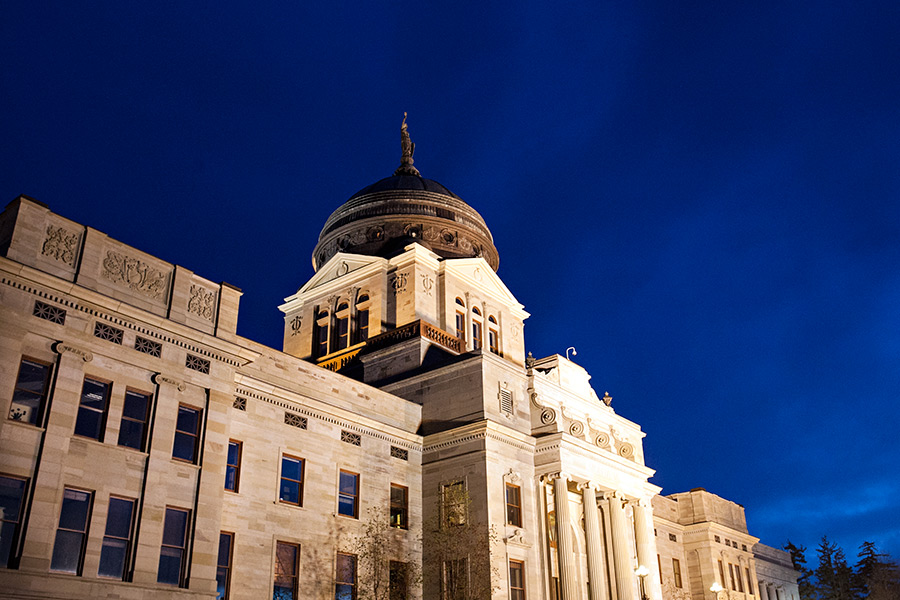HELENA — Just before the Montana Legislature gaveled in its 2017 session Monday, Democratic Gov. Steve Bullock looked to ease the tension building over a looming budget battle by calling on the two parties to work together for the state’s best interests.
Bullock used his second inaugural address in the packed state Capitol’s rotunda to appeal to the Republican legislators in the audience to rise above partisan rancor as the session begins.
“I ask all of you taking an oath today, how will you positively influence Montana?” Bullock said. “Will you be remembered for your rhetoric or your results?”
After Bullock’s speech, House Republicans gave no sign that they were ready to play nice.
In a news conference outside the House chamber, Speaker Austin Knudsen, R-Culbertson, blamed Bullock and his predecessor, former Gov. Brian Schweitzer, for a sagging economy that must now be fixed because of poor management, excessive regulations and too much government spending.
“We have a problem in this state,” Knudsen said. “We have 12 years of growth under Democratic administrations and we don’t have the revenue to pay for it.”
A drop in energy production has had a ripple effect across the different taxes the state collects to pay for government operations. As a result, the revenues collected last year are not enough to cover existing state spending, meaning cuts loom for the next two-year budget cycle.
That sets the stage for the budget fight between a twice-elected Democratic governor and a Republican-led Legislature that believes it has a voter mandate to rein in state government.
New Secretary of State Corey Stapleton chose to speak about conflict to the Montana lawmakers, their spouses and children who all crowded into the House chamber for the ceremonial first floor session.
“You all have been elected to serve in Montana’s house of conflict,” he said.
Stapleton, a Republican, used World War I to illustrate the theme, saying the warring sides in trenches 100 yards apart laid down their weapons to come together during a Christmas cease-fire.
Stapleton said the next few months of the session will be another kind of conflict, one that will affect the lives of those who live under the laws the Legislature passes, and he urged lawmakers to show their humanity as those soldiers did a century ago.
Bullock has proposed a budget that includes spending cuts across state agencies, as well as new taxes on the wealthy and medical marijuana, plus tax increases on tobacco and wine sales. He also is proposing a $293 million infrastructure package that is sorely needed to improve roads and water systems in eastern Montana, which has strained with this decade’s Bakken oil boom.
House Majority Leader Ron Ehli, R-Hamilton, said Republican budget writers are taking a close look at Bullock’s proposal, particularly his planned cuts, and that they will be responding to Bullock’s infrastructure package with a “basic infrastructure” bill of their own.
The Republicans outlined what they call an action plan for the session that includes opposition to several of Bullock’s budget initiatives, a repeal of “unneeded regulations” and a pledge to prevent government overreach.
House Minority Leader Jenny Eck, D-Helena, said in a statement that the state’s budget problems are due to last decade’s Republican tax cuts that benefited wealthy individuals and out-of-state corporations.
“For too long we have shifted the responsibility of taking care of our school and community infrastructure onto local property taxpayers,” Eck said. “They are maxed out. They can’t bear this burden anymore.”
